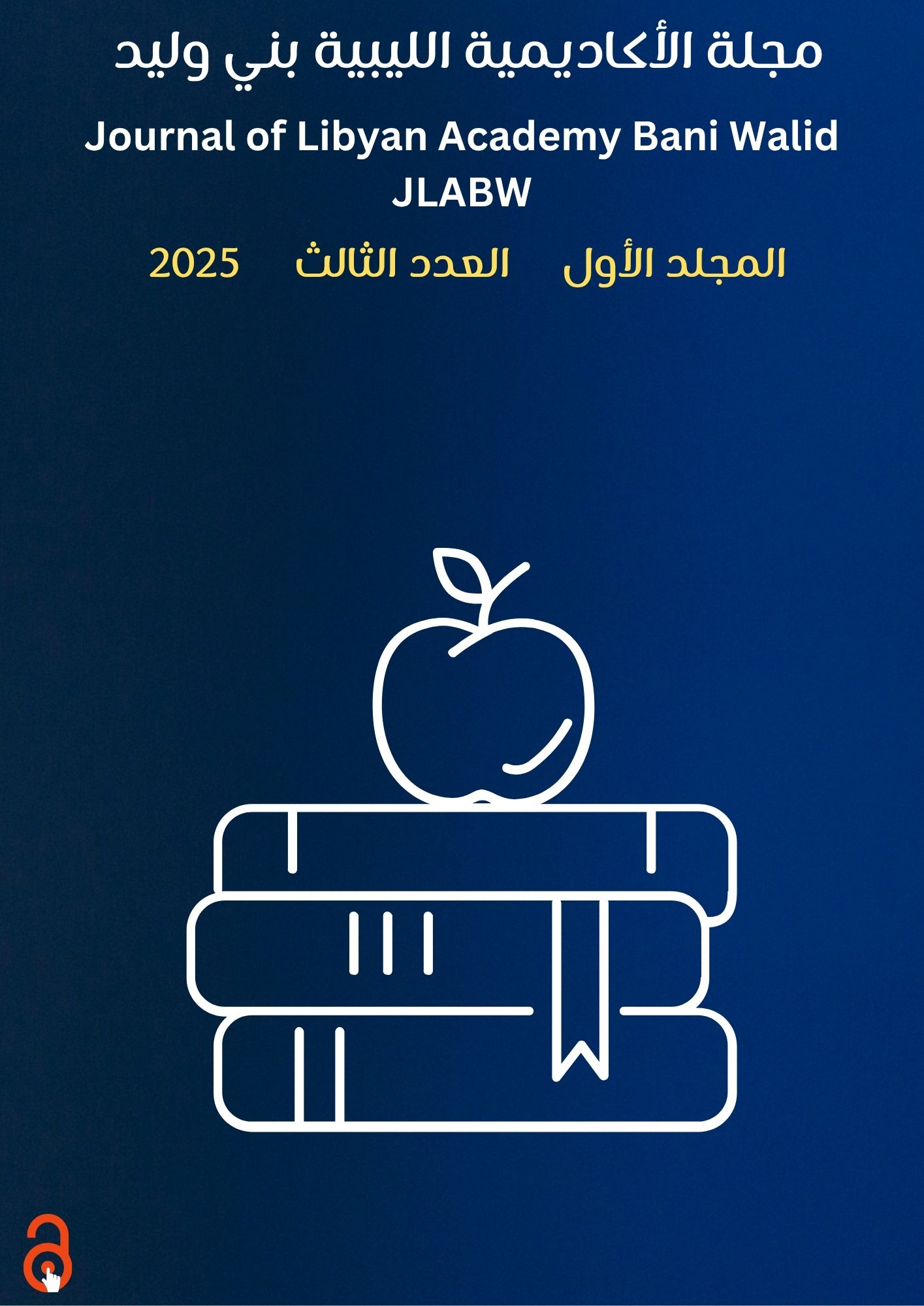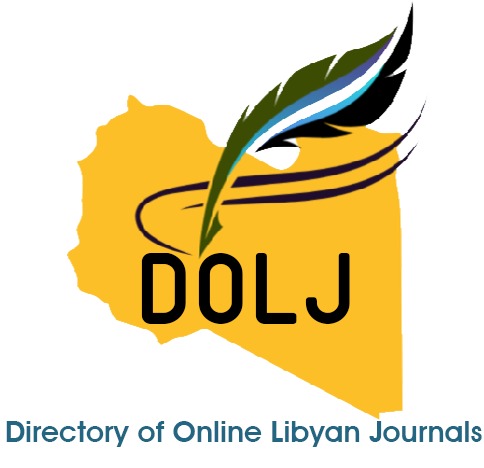Identity Construction Through Language Learning: SL Libyan Students' Perspectives of Second Language Identity
DOI:
https://doi.org/10.61952/jlabw.v1i3.163Keywords:
Language Identity, Second Language Learning, Cultural Integration, Linguistic Accommodation, Applied LinguisticsAbstract
The interrelationships between these terms language identity and cultural differences have become a major focus for many cultural researchers and social theorists. This study explores identity construction in second language acquisition (SLA) among Libyan students learning English. It examines how learning a second language leads to the development of new identities and how learners perceive themselves in relation to the target language culture. The research adopts a mixed-methods approach, utilizing a structured questionnaire with both closed-ended and open-ended questions to investigate the perspectives of 25 PhD students in Applied Linguistics at the Libyan Academy. The study draws upon existing literature on identity in SLA, including concepts of language variation, accommodation theory, and the acculturation model, to frame the analysis of the collected data. The findings contribute to a deeper understanding of the theoretical and practical implications of second language learning on the identity of Libyan students, enriching knowledge of SL identity through a systematic review of current studies related to identity construction through language learning.
References
Berger, Peter L., and Thomas Luckmann. The Social Construction of Reality. Doubleday, 1966.
Bloom, William. Personal Identity, National Identity, and International Relations. Cambridge University Press, 1990.
Bostean, G., and B. J. Gillespie. "Acculturation, Acculturative Stressors, and Family Relationships among Latina/o Immigrants." Cultural Diversity and Ethnic Minority Psychology, vol. 24, no. 1, 2018, pp. 126-138. doi: 10.1037/cdp0000169.
Bluestone, K. "Acculturation, Interpersonal Networks, and the Learner's Sense of Self: The Effects of Social Relationships on Second Language Learning." Working Papers in TESOL and Applied Linguistics, vol. 9, no. 2, 2009, pp. 135-164.
Culhane, S. F. "An Intercultural Interaction Model: Acculturation Attitudes in Second Language Acquisition." Electronic Journal of Foreign Language Teaching, vol. 1, no. 1, 2004, pp. 50-61.
Coupland, N., and A. Jaworski. "Relevance, Accommodation, and Conversation: Modeling the Social Dimension of Communication." Multilingua, vol. 16, 1997, pp. 235-258.
Deng, Francis M. War of Visions: Conflict of Identities in the Sudan. Brookings Institution, 1995.
Dos Santos, Luis Miguel. "The Relationship between Social Identity and Foreign Language Learning Motivation: The Sustainability of Heritage Language Learners." Sustainability, vol. 13, no. 23, 2021, p. 13102.
Firth, A., and J. Wagner. "On Discourse, Communication, and (Some) Fundamental Concepts in SLA Research." Modern Language Journal, vol. 81, 1997, pp. 286-300.
Giles, H., N. Coupland, and J. Coupland. "Accommodation Theory: Communication, Context, and Consequence." Contexts of Accommodation: Developments in Applied Sociolinguistics, edited by H. Giles, N. Coupland, and J. Coupland, Cambridge University Press, 1991.
Goldstein, T. Teaching and Learning in a Multilingual School: Choices, Risks, Dilemmas. Lawrence Erlbaum Associates, 2003.
Hawkins, M. "Researching English Language and Literacy Development in Schools." Educational Researcher, vol. 33, no. 3, 2004, pp. 14-25.
Heller, Monica. "Negotiations of Language Choice in Montreal." Language and Social Identity, edited by John Gumperz, Cambridge University Press, 1982, p. 118.
Hogg, Michael, and Dominic Abrams. Social Identifications: A Social Psychology of Intergroup Relations and Group Processes. Routledge, 1988.
Jenkins, Richard. Social Identity. Routledge, 1996.
Johnston, B. Values in English Language Teaching. Lawrence Erlbaum Associates, 2002.
Meyerhoff, Miriam. Introducing Sociolinguistics. Routledge, 2006, pp. 27-54.
Norton, B., and K. Toohey. "Changing Perspectives on Good Language Learners." TESOL Quarterly, vol. 35, no. 2, 2001, pp. 307-322.
Pre, Serge Pacome Yao. "Second Language Acquisition and Shifting Identities." The Personal, Place, and Context in Pedagogy: An Activist Stance for Our Uncertain Educational Future, Springer International Publishing, 2021, pp. 165-185.
Rasenberg, M., A. Özyürek, and M. Dingemanse. "Alignment in Multimodal Interaction: An Integrative Framework." Cognitive Science, vol. 44, no. 11, 2020, e12911. doi: 10.1111/cogs.12911.
Schumann, J. H. "Research on the Acculturation Model for Second Language Acquisition." Journal of Multilingual and Multicultural Development, vol. 7, no. 5, 1986, pp. 379-392.
Stamp, R., A. Schembri, B. G. Evans, and K. Cormier. "Regional Sign Language Varieties in Contact: Investigating Patterns of Accommodation." Journal of Deaf Studies and Deaf Education, 2015.
Stockwell, Peter. Sociolinguistics: A Source Book for Students. Routledge, 2002, pp. 6-10.
Taylor, Charles. The Sources of the Self: The Making of the Modern Identity. Harvard University Press, 1989.
Wang, Zi, Troy McConachy, and Ema Ushioda. "Negotiating Identity Tensions in Multilingual Learning in China: A Situated Perspective on Language Learning Motivation and Multilingual Identity." The Language Learning Journal, vol. 49, no. 4, 2021, pp. 420-432.
Weedon, C. Feminist Practice and Poststructuralist Theory. 2nd ed., Blackwell, 1997.
Wendt, Alexander. "Anarchy is What States Make of It." International Organization, vol. 46, 1992, pp. 391-426.
Asma Issa Karwad. (2025). Challenges Students Encounter When Translating Idiomatic Expression. A Case Study of Faculty of Education Students. Journal of Libyan Academy Bani Walid, 1(2), 229–242. Retrieved from https://journals.labjournal.ly/index.php/Jlabw/article/view/43
Masoudah Zaydan Ali ALnalouti. (2025). The Impact of Duolingo on Vocabulary Acquisition among English Department Students at Al-Jufra University. Journal of Libyan Academy Bani Walid, 1(2), 229–242. Retrieved from https://journals.labjournal.ly/index.php/Jlabw/article/view/124
Ennas Mawloud Faraj Alharam. (2025). Integrating Deep Learning Models into English Language Teaching Pedagogy: A Contextual Analysis of Opportunities and Challenges in Libyan Universities. Journal of Libyan Academy Bani Walid, 1(3), 01–18. Retrieved from https://journals.labjournal.ly/index.php/Jlabw/article/view/67








